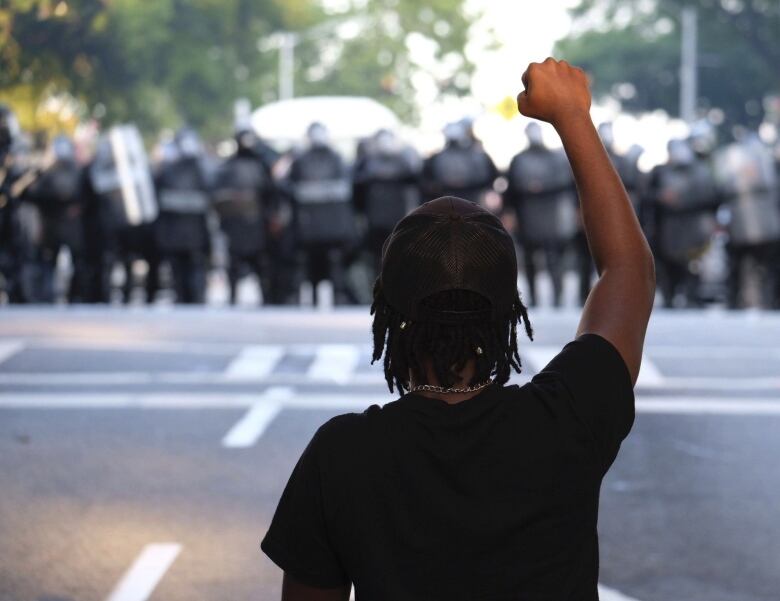Pain, anger and honest talk about race: Watching the U.S. protests from N.L.
N.L. may be a friendly place, but that doesn't make it immune from racism

From her home in Torbay — a full continent away from her former life in California — Kim Phillips has been watching the news from the U.S. closely.
"I'm sad at the violence, I'm sad at the destruction, I'm sad at the people who are going to be injured and hurt and the businesses who are minority-owned that are going to suffer," said Phillips, describing protests that have escalated since George Floyd died in Minneapolis police custody last week.
Phillips, who moved to Newfoundland and Labrador to earn a PhD in sociology at Memorial University, said she is also not surprised, as tensions have been bubbling for a while.

As a woman of colour, she feels many Canadians don't have a good understanding of the racial issues in the United States.
"I think there is not an understanding of the brutality and the segregation and the Jim Crow laws and how that has affected people and the pain of being a person of colour in the United States," she told CBC News.
Experiences with racism
Phillips said she's had her share of experiences with racism, from daily microaggressions, to questions about her ethnicity, and being told her English is good.
"My best friend was African-American and we got chased by a group of white supremacists and called the N-word and I think we were about 12 and that obviously was traumatizing and has stuck with me my entire life," she said.
But she's also had encounters with racism here. She recounted her reaction to seeing the term "visible minority" on her student visa application to come to Canada.
"I found that term so offensive," she said.
'So painful'
Paul Adjei, an associate professor of social work at MUN who researches anti-black racism, said black protesters in the U.S. are angry about a lack of accountability when it comes to police brutality.
Adjei said he finds it hard to watch the protests.
"I've reached a point where I feel helpless. You know, I can't even watch television because moments like this [are] so painful," he said.

Even though people here feel far removed from the protests, and Newfoundland and Labrador has a reputation for being friendly and hospitable, Adjei says racism exists here, too.
"It is here, and it is very prevalent in our everyday lives as black people," he said.
It's something Adjei has experienced personally, when someone yelled the N-word at him while he was walking down the street near his home.

Adjei said it's time for people in Newfoundland and Labrador to do some soul-searching about how black people in the province are treated.
"It is possible for somebody to be really nice, very kind and generous and also be anti-black racist," he said in an interview.
He says when a person of colour shares their experience with racism, it's best for allies to listen.
"Sometimes our white allies tend to trivialize or try to rationalize their experience," he said.
A safe space
In Corner Brook, Shanice Guy says the Black Student Caucus at MUN's Grenfell Campus has created a safe space for black students to share their experiences, without judgment or fear.
She says the caucus has helped her with the tough experience of transitioning to life in this province.
"Having groups that I can rely on, like the black caucus, I think that definitely put in motion a sense of family for me I never had before," she said.

Guy has also experienced racism here, from people staring at her to touching her hair. She said someone even asked why she had come to Canada to take jobs.
"I'm here for an education, I'm here to better my life, I'm not here to steal jobs from you guys," said Guy.
Guy said they've held anti-racism talks on campus to create a better environment for students, which has started to change things for the better.
She says there needs to be an open discussion about the do's and don'ts when it comes to anti-racism.

She said people must listen and be understanding, and she says there's no need for white guilt.
"At the end of the day we're all brothers and we're all sisters, so we should have each other's back," she said.
"And with all this protesting and people being more aware, I hope it definitely brings reflective thoughts in people's minds."


